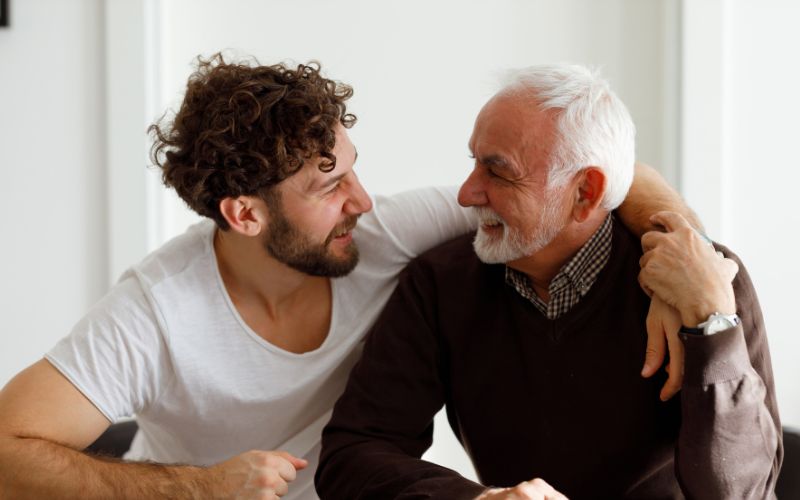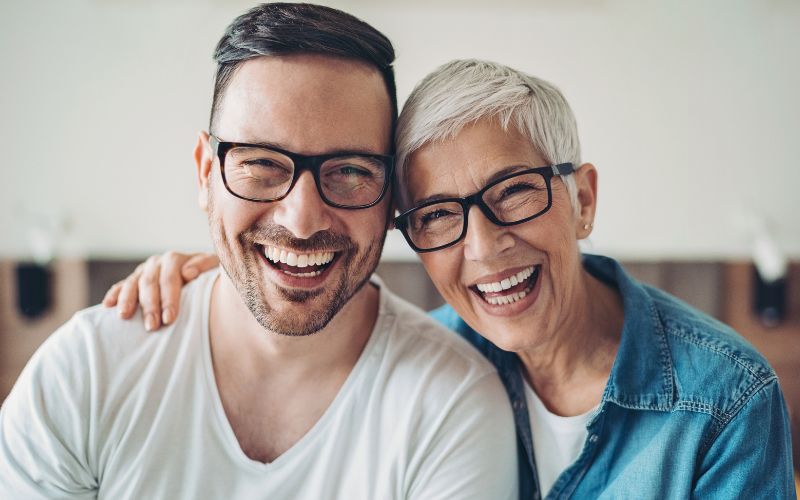For some parents and family members, the early stages of the recovery process can feel like a never-ending onslaught of concepts to chew on, new information to digest, and work to be done. We may have just gotten a night’s sleep before being told that we, too, needed to start working on our recovery and changing our lives.
Living as the family member of someone struggling with addiction or significant mental health issues takes a toll on everyone. It is not possible to live in proximity of a loved one with these challenges and not be deeply affected. However, it is possible to live in serenity and happiness, whether or not your loved one maintains recovery long-term. Research also shows that when family members engage in their own recovery, the identified client has a much higher chance of success.
This blog will cover:
- Why family members need recovery too.
- What recovery looks like for family members.
- The benefits of recovery for family members.
Why do family members need a program of recovery?
We have probably all heard, “he sure does know how to push my buttons!” In recovery, you sometimes hear next, “that’s because he installed them!” Sometimes, those we are closest to have the greatest ability to affect how we feel. Months or years of dealing with a loved one dealing with addiction or mental health issues affects family members deeply.
Loving someone who is struggling is one of the most emotionally taxing experiences a person can go through. For some, we become obsessive, searching for answers, orchestrating solutions, and attempting to control this terrifying situation. Others become avoidant, which can look like pulling away from relationships, dissociating, or denial. Over time, our life becomes more and more affected by our loved one’s condition, and we lose our sense of serenity and joy as it is overtaken with fear, anger, or other emotions.
While we may not use substances or behaviors addictively (though some of us do), family members’ behavior can still mirror the affected individual. In other words, our life can still be unmanageable, our moods unpredictable, our emotions erratic, and our relationships strained, even without taking a drug. Many people do not even recognize the dysfunctional patterns they have been engaged in until they enter the recovery process and get an outside perspective.
So, what does recovery for family members look like?
Recovery for family members, much like recovery for someone overcoming addiction or mental health challenges, can look as varied as the individuals involved. Ultimately, recovery is about gaining insight about ourselves, growing our spiritual life (whatever that means for us), and living in harmony with all that life throws at us.
For family members, recovery is not about putting down drugs or alcohol. Typically, it is more about ‘putting down’ the behaviors, reactions, and patterns of thinking that are contributing to our life feeling chaotic and unmanageable. What gets us into recovery is different for everyone, but the markers of recovery include taking feedback from people that have walked the path before you, engaging in a community of understanding peers, and making tangible changes to break patterns that are not serving you.
Specifically, recovery includes attending mutual support groups, such as Al-Anon or CoDA, receiving individual or couples’ therapy, engaging in a spiritual community, and/or addressing physical wellness. It’s highly encouraged to work with a sponsor; someone you meet at a support group that has lived experience to help support you on your journey. Recovery practices are varied and may include prayer, journaling, reading specific literature, or practicing mindfulness. Overall, recovery is marked by open-mindedness, honesty, and willingness to try new things.
What benefits can I get from recovery?
While some of us may be desperate for some new ideas, others may be unsure about beginning the recovery process. After all, isn’t this whole process about getting our loved one healthy? To be completely honest, no. This process is about you too.
Whether our troubling behaviors are blatantly obvious (giving someone money when you know they are lying about what it’s for) or more covert (working a bit more the last few months because it’s stressful to be home), we are all affected. As we share with others about what we have been going through the feeling of aloneness dissipates and is replaced by hope. We begin to recognize our own needs and take responsibility for having them met. Over time, we feel confident in our ability to navigate challenges, recognizing that we can respond rather than react.
It is possible to have serenity, regardless of whether our loved one chooses recovery. What previously would have been a crisis leading us to put our own lives on hold for days to deal with becomes a minor inconvenience that is not ours to solve. What previously would lead us to worry incessantly, playing out each terrible potential outcome in our heads, become fleeting moments of concern as we now have the faith and skills to navigate whatever comes our way.
Loving an individual in the midst of addiction or severe mental health issues is a terrifying and exhausting experience. Once they enter treatment, we may be hopeful that the worst is behind us. As family members, this is our opportunity to begin our own healing process by entering recovery and addressing the affected areas of our lives. By working our program of recovery, we ensure we will be the healthiest version of ourselves, not only for our partners or children, but for ourselves.
Resource:
Al-Anon is a mutual support group similar to Alcoholics Anonymous specifically for family members of alcoholics. They have free groups worldwide and have helped millions of people. This is an excerpt from Al-Anon literature.
“A few special words to those of you who haven’t been with us long: Whatever your problems, there are those among us who have had them, too. If you try to keep an open mind, you will find help. You will come to realize that there is no situation too difficult to be bettered and no unhappiness too great to be lessened.
We aren’t perfect. The welcome we give you may not show the warmth we have in our hearts for you. After a while, you’ll discover that though you may not like all of us, you’ll love us in a very special way—the same way we already love you.
Talk to each other, reason things out with someone else, but let there be no gossip or criticism of one another. Instead, let the understanding, love, and peace of the program grow in you one day at a time.”
“We who live or have lived with the problem of alcoholism understand as perhaps few others can. We, too, were lonely and frustrated, but in Al-Anon we discover that no situation is really hopeless and that it is possible for us to find contentment, and even happiness, whether the alcoholic is still drinking or not.
We urge you to try our program. It has helped many of us find solutions that lead to serenity. So much depends on our own attitudes, and as we learn to place our problem in its true perspective, we find it loses its power to dominate our thoughts and our lives.
The family situation is bound to improve as we apply the Al-Anon ideas. Without such spiritual help, living with an alcoholic is too much for most of us. Our thinking becomes distorted by trying to force solutions, and we become irritable and unreasonable without knowing it.”
Source: https://al-anonbythebay.org/wp-content/uploads/2021/07/al-anon-welcome-steps-trads-closing.pdf






